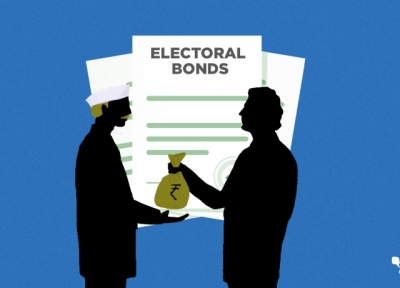
A recent investigation by news website Huffington Post India has revealed that the BJP-led Central government introduced the Electoral Bond Scheme, ignoring the objection of the Reserve Bank of India (RBI) and the Election Commission (EC). It passed a Finance Bill in 2017 and the scheme was launched in January 2018. An electoral bond is an instrument which can be bought by any member of the public or corporate to make donations to political parties anonymously.
Since its introduction, the scheme has come under sharp criticism. Various stakeholders have expressed their objection to the scheme, saying the system has several loopholes. It is alleged that the donation made through electoral bonds are, in effect, not as transparent as it is claimed to be. With the recent articles by HuffPost India, written based on documents furnished by a Right to Information activist, the controversy over electoral bonds are resurfaced.
Electoral bonds are a type of bearer bond instrument in the nature of promissory notes issued by banks through which as Indian citizen or a company established in the country can fund political parties anonymously.
A bearer bond instrument is a type of fixed-income security in which no ownership information is recorded and the security form to the purchaser. Whoever is in possession of the bond is entitled to the coupon payments.
A promissory note is a signed document containing a written promise to pay a stated sum to a specified person or the bearer at a specified date or on demand.
When they can be bought?
Electoral bonds are available for purchase for 10 days each in the months of January, April, July and October. An additional period of 30 days would be specified by the Centre in the year of general elections.
Picture Credit : Google

